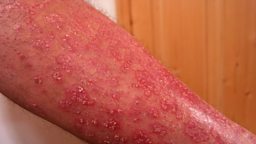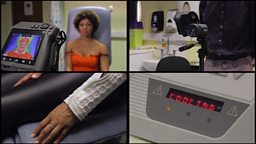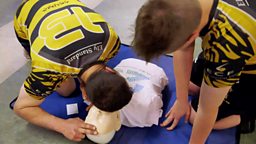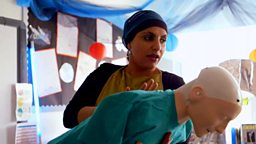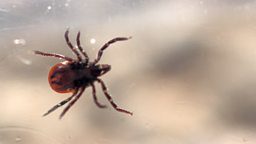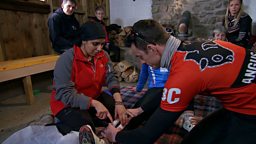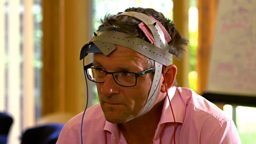What is PANDAS and how do I spot it in my child?
Esmae-Rose was four years old when her parents Sarah and Jemma first noticed something was wrong. After complaining of feeling tired one evening, Esmae-Rose went to bed. The next morning she came downstairs a completely different child.

“It started with a small shoulder shrug”, remembers Sarah, “and within seven days the small shoulder shrug had turned into an incredibly violent tick where the back of her scalp was touching the back of her spine, her hands and legs would jerk out to the side, her face was gurning. it was pretty horrific to watch”.
Over the following weeks, Esmae-Rose’s symptoms became more extreme. She exhibited obsessive behaviour, and even threatened to kill herself. The family’s doctors were baffled – they considered everything from ADHD to OCD to epilepsy. But it wasn’t until the family was referred to a specialist at Darlington Memorial Hospital that the true cause was diagnosed – PANDAS.
PANDAS
PANDAS stands for Paediatric Autoimmune Neuropsychiatric Disorders Associated with Streptococcal Infections. It was first identified in the United States in 1998, and the number of sufferers is unknown (though the PANDAS Network estimates it may affect one in 200 children in the USA).
Researchers believe PANDAS is the result of a faulty immune response to a streptococcal infection (like strep throat, or scarlet fever). Normally, a child’s immune system will produce antibodies to fight the streptococcal bacteria – but in cases of PANDAS these antibodies cross the blood-brain barrier and attack a part of the child’s brain called the basal ganglia, which is critical for smooth motor function. The violent tics which result are characteristic of PANDAS.
But because PANDAS shares many symptoms with other conditions, such as OCD and ADHD, it can be difficult to diagnose. Dr Tim Ubhi, pediatrician and a campaigner for greater awareness of PANDAS, describes the key factors which may suggest PANDAS:
- Sudden onset of OCD-like symptoms, including tics.
- Sudden onset of anxiety, including separation anxiety.
- Recent exposure to sore throat or possible streptococcal infections
A key word is ‘sudden’ – conditions like OCD do not appear overnight, but PANDAS can. If your child has symptoms that appear suddenly, then do see your doctor as quickly as possible – and tell them you think it could be PANDAS.
TREATING PANDAS
Understanding PANDAS is critical because the sooner it is treated, the better the outcome is likely to be. It is important to test whether a child has recently suffered from a streptococcal infection, and if so, then a course of antibiotics can help rid the body of the infection that is triggering the immune response. If an early diagnosis is not made, then the condition can be more difficult to treat. Treatment might include administering intravenous immunoglobulin (in which antibodies are injected directly into the bloodstream).
RELATED LINKS
Pans/Pandas uk:












